European Bulletin of Social Psychology 33,3 (June
2022)
Dear friends and colleagues,
We hope that this second edition of the Bulletin for 2022 finds you all
well. The Bulletin includes comments from our president Kai Jonas and some
information (and a request) about next year’s General Meeting. We also
include a letter from the President of the Polish Association of Social
Psychology.
You will also find an update from our Social Psychology Ambassadors, and
an announcement for a workshop on scientific writing and publishing. We
also call for applications for new editors of the European Review of
Social Psychology, and Social Psychological and Personality
Science. We also warmly welcome our new Executive Officer Kennedy
D’Abreu de Paulo.
Moreover, you will find our usual announcements of future activities,
recently awarded grants, and the new members who we warmly welcome to the
EASP community.
With best wishes,
Karen, Hannah, and the EASP Executive Committee
President's
Corner
Dear colleagues,
I am writing this president’s corner currently being based in
Johannesburg, South Africa, where much stricter COVID-19 regulations are
still in place, and it seems to me that these regulations have widened the
existing societal divide here even more. Anyone studying the categorization
and effects of barbed wire fences, walls and other dividers will find
themselves in the “place to be” even more than before. As much as we
hoped that we could leave COVID-19 behind us this Northern hemisphere
spring, we are already proven wrong. The war in Ukraine has seamlessly
created another major geopolitical and humanitarian crisis. What I am
trying to say is that the world is not back to “normal” unfortunately,
but for many of us, it this “normal” did not exist before either.
Political commentaries recently wrote that the “cold war” is back. The
Vietnamese-American author Viet Thanh Nguyen rightfully states that for a
number of us that could not enjoy the privilege of living in Western
Europe, the so-called “cold war” was a “hot war” all along.
The world of 2022 also impacts EASP and its members. While social
psychology as a discipline has potentially even gained in relevance
explaining and commenting on current phenomena, many of our members remain
or are now personally affected, too. We are also publishing a summary by
our Polish sister society, the Polish Social Psychological Society,
authored by Tomasz Grzyb, on their response to the Ukraine refugee crisis.
I believe that many of you find that informative and inspirational.
The General Meeting will take place in Cracow July 1-4, 2023 as planned.
We have had careful but reassuring discussions with the organizing team
around Malgorzata Kossowska who confirmed that Cracow is safe and a
welcoming town for everybody, gay or straight. The format of the GM has to
be adjusted of course to reflect changes after COVID-19 and the global and
local political situation. We will not be able to offer a full hybrid
version due to financial constraints and we have to ask for early and full
commitment to make a financially robust planning possible. A survey
among our members is getting distributed to help the organizers to come up
with a format that fits best.
While there is much happening out there, the “back office” of EASP
is very busy as well. Nina Hansen, our new executive assistant, Kennedy
D’Abreu de Paulo, and I are working hard to make EASP future-proof. The
amount and depth of administration that EASP now has to comply with has
made it necessary to further and seriously professionalize our activities.
We need to work with accountants, legal counsel, tax advisors etc. to be
able to comply. Procedures that many of you may remember to be possible in
the past are not compliant with the new regulations we have to operate
under. This will make a number of processes more complicated and it will be
a learning period for all of us, and the EC is asking for your
understanding. We will explain those measures in a town hall meeting before
the summer.
For now, all the best
Kai Jonas
EASP General Meeting 2023
Dear members of EASP,
It is that time of the year when we remind you about the EASP General
Meeting, which is going to happen in 2023 in Krakow. We hope that the warm
feeling of cognitive consistency will only strengthen your motivation to
come but secretly we assume that the dates from 30.06 to
4.07.2023 are already booked in your calendars for the next
year.
We realize that in the meantime you might find yourself in socially
awkward situations when someone sends you an alternative invitation for the
dates overlapping with the General Meeting. Don’t worry! We’re here to
help with some evidence-based strategies that you can use (with
references). For example, you could say…
“Sorry! From 30.06 to 4.07 I’ll be at the EASP General
Meeting because…
… my high need for closure made me already book the hotel (Kruglanski,
2004)
… July in Krakow is both warm and competent (Fiske et al., 2002)
… I already said I would do it and it wasn’t forced (Festinger &
Carlsmith, 1959)
… I believe I can do it (Bandura, 1977)
… the future in Krakow feels particularly pleasant (Bem, 2011)
... my doctor advised me to avoid the frustration of missing the EASP GM
(Dollard et al., 1939)
… the organizing committee sent me a lot of emails (Zajonc, 1968)
… everyone else is going to be there (all social psychologists, all the
time).”
We hope that it will help! Stay tuned and we promise we will not let you
forget about the GM :)
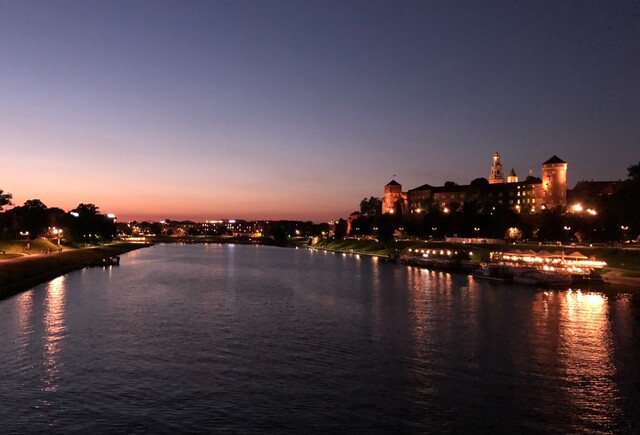 EASP
General Meeting 2023
Letter from
the President of the Polish Association of Social Psychology
Since February 24, from the beginning of the Russian aggression against
Ukraine, 3.4 million refugees have crossed the Polish-Ukrainian border.
Only some of them kept moving forward – in order to arrive,
predominantly, at Western European countries – the vast majority stayed
in Poland. These include mainly women and children. Most men, as they are
subject to compulsory military service, have stayed in Ukraine. Once in
Poland, Ukrainians rarely stay in refugee camps – most of them rent
apartments or rooms or stay with host Polish families.
Naturally, this situation brings about certain psychological
consequences. The immense will to provide help, financial, material or in
the form of voluntary service, displayed by the Polish people throughout
the initial weeks of the war in Ukraine starts to slowly die out. Even
though the mood among the members of Polish society is mostly
pro-Ukrainian, some anti-refugee voices can be heard as well – these,
almost certainly, are knowingly fuelled through Russian
misinformation.
In the wake of this situation, the Polish Social Psychological Society
wishes to undertake a number of actions. I would like to describe a few of
them.
Firstly, PSPS and its members are involved in providing direct help to
refugees. Some of us work as volunteers, host refugees at our homes or help
them adjust to the new reality. We also provide legal aid. PSPS has
appointed a coordinator whose job is to gather offers of aid and diagnose
needs.
PSPS has participated in the development of a therapeutic fairy tale
titled “Ola, Borys i ich nowi przyjaciele” (Ola, Borys and Their New
Friends) – the book, issued in 10 thousand copies, was handed to children
arriving at Poland. The book, with the plot constructed around the problem
of finding oneself in a new reality, was to help young refugees during
their first days in a new country. The initiative received very positive
feedback – it was found to be very useful for the volunteers working at
railway stations and at reception points for refugees.
Our society also disseminates information on social psychology to the
general audience. Recently, we have prepared a series of brief texts,
written in plain language, devoted to stereotypes and prejudice. These are
disseminated through PSPS social media channels. We hope that with these
texts, their audience will be able to better understand the social
processes we are witnessing.
We also remember about researchers – many of us would like to
investigate, from the scholarly perspective, the situation the refugees
have found themselves in. Thus, PSPS supports the idea of setting up
standards for research conducted on refugees, through which we would make
sure their well-being is taken into consideration and they are treated
subjectively.
We also plan further measures – we are working on an educational
program for teachers who have to teach classes composed of both Polish and
Ukrainian students. We hope the program will be launched in September. We
want the program, which will be based on the current knowledge of
intergroup relations, to provide teachers with the right tool for handling
multiculturalism-related problems.
There are many challenges ahead – we would like to express our
gratitude for the support we have been receiving from the European
community of psychologists. We sincerely hope that together we will be able
to help those who suffered the most due to the warfare.
Prof. Tomasz Grzyb
President of Polish Association of Social Psychology
Introducing our new Executive Officer: Kennedy
D’Abreu de Paulo
Oladipupo Shobowale has moved on to a different function after managing
the transfer of our office from Germany. We are very thankful for his
service in these times of change and COVID-19.
To secure a smooth handover and to safeguard a continuous direct line to
our Dutch tax advisor, accountant, tax authorities we are very happy that
we can present our new executive assistant, Kennedy D’Abreu de Paulo.
Kennedy is going to be hosted by Maastricht University, and we are very
grateful for this continuous institutional support.
Kennedy obtained his master’s degree in biomedical sciences
specialising in fundamental and translational neuromodulation at Maastricht
University. During his career path he has been eager to train competences
that meet the requirements set by future employers and society. Following
his graduation, Kennedy secured a position as a patient and research
administrator, while conducting research on blood donation to expand his
research skills. Ultimately, he strives to pursue a PhD. Kennedy has a
proactive attitude which paved way to his current position as an executive
officer at EASP. He will work part-time for EASP.
Welcome to the EASP community, Kennedy!
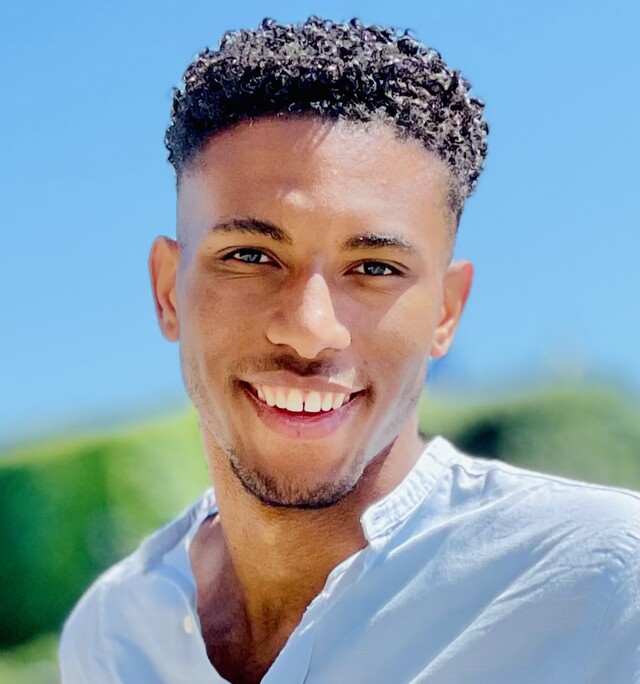 Kennedy
D’Abreu de Paulo
Member
Contributions to the History Website
We would like to remind you about the website on the history of European
social psychology: https://history.easp.eu. Thank you very
much to colleagues who have contributed so far. The website is still very
incomplete, however, and we write again to request more contributions.
We would like to expand the website to cover the history of social
psychology in Europe as broadly as we possibly can. Specifically, we invite
everyone to consider writing contributions about ideas, theories, schools,
or people in European social psychology. We are also interested in thoughts
and streams that had a national or regional impact, but that have never or
not yet been extensively discussed internationally.
We are not looking for people to send their papers to put on the
website. Instead, we are asking for written contributions. Please take a
look at the website to get an idea of what we're
looking for, and get in touch if you would be willing to make a
contribution. You can send these to media@easp.eu.
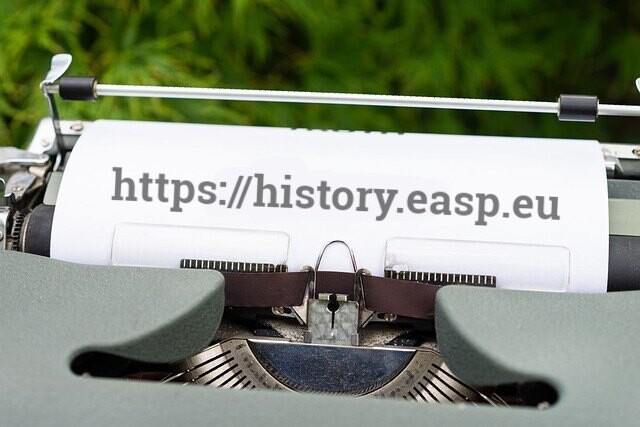 An
online compendium of ideas, schools and people in the field of Social
Psychology
Announcement: EASP Workshop on Scientific Writing and
Publishing
(online)
September 23th and October 7th, 2022
Registration deadline: August 10th, 2022
Workshop last year:https://www.easp.eu/news/itm/easp_workshop_on_scientific_writ-1336.html
Workshop this year: https://www.easp.eu/news/itm/easp_workshop_on_scientific_writ-1492.html
We are happy to offer early career researchers an opportunity to
participate in a workshop on scientific writing and publishing, to be
delivered by our members Marco Brambilla (University of Milano-Bicocca,
Italy) and Kai Epstude (University of Groningen, The Netherlands). Marco
and Kai delivered the workshop last year with great success (you can read
the report in our previous bulletin),
and we are grateful for their willingness to deliver it this year as
well.
Training in scientific writing in English has been identified by the
EASP as an obstacle to achieving greater regional diversity, which impedes
our discipline’s knowledge development. Therefore, priority will be given
to PhD students and postdocs from underrepresented regions, who do not have
access to an academic writing workshop in a PhD program, or who struggle
with scientific English writing (self-identified).
The workshop will aim at giving participants advice on how to publish in
social psychology journals. More specifically, participants will learn how
to write a scientific article by focusing on the different sections of a
paper, get practical advice and feedback, and will be asked to write some
sections of a manuscript considering the contents of the workshop. In
addition, they will discuss the publication system in general (how it
works), and how to choose a journal for a specific paper. The workshop also
provides the opportunity to address participants’ specific questions
about any of these topics. The workshop is designed for PhD students who
are in the second half of their doctoral programme or postdocs in early
stages of their postdoctoral training.
Registration
To register, please email office@easp.eu by August 10th, 2022. The
subject of your email should be “RE: EASP Workshop on Scientific
Writing and Publishing” and it should include the following
information: your name, academic institution, PhD supervisor, career stage
(i.e., year in PhD or postdoctoral studies), topic of research and title of
your dissertation, and a paragraph that explains about your motivation to
participate in the workshop.
 EASP workshop on scientific writing and
publishing
Invitation to a roundtable. Marija Branković (Singidunum
University) aims to foster cooperation within the region through organizing
local roundtables in Bosnia & Herzegovina, Croatia, Czech Republic,
Hungary, Kosovo, Romania, Serbia, Slovakia, Ukraine, and Latvia. These
roundtables will bring together social psychologists from respective
countries to discuss their experiences in doing research and participating
in the European and broader international community. The first roundtable
will be held in Slovakia in September. If you are interested in
participating and have not been in touch yet with Dr. Branković, you are
welcome to contact her at marija.brankovic@fmk.edu.rs.
Call for papers. Jana Papcunová (Institute of Social Sciences,
CSPS, Slovak Academy of Sciences) invites submissions to a special issue of
the journal Individual and Society (Človek a spoločnosť) on “Social
media and networks, smartphones and its users from a psychological, social
or pedagogical perspective.” The call is open until July 15 https://svusav.sk/en/coming-up.
The journal’s new website provides all information for authors https://individualandsociety.org/.
Other
Announcements
Calls for
Papers:
Call
for Submissions: Small Group Meeting: Intergroup relations in face of
contemporary challenges
Submission deadline: June 30th, 2022
Call
for papers and posters for the 2022 NoBeC-Conference
Submission deadline: July 15th, 2022
Call
for Proposals: EASP-SPSSI Joint Small Group Meeting in 2023
Submission deadline: August 1st, 2022
ECR
Special Issue of The Psychologist: Open Call for
Contributors
The Psychologist; Submission deadline: August 15th, 2022
Call
for papers for special issue on Identity patterns and sustainable
choices
Psicologia sociale; Submission deadline: September 15th, 2022
Call
for Papers - Special Issue in CRESP: The Social Psychology of Forced
Migration
Current Research in Ecological and Social Psychology; Submission deadline:
October 31st, 2022
Call
for Manuscripts for Special Issue "Using Social Influence to Nudge towards
Healthy and Sustainable Food"
Social Influence; Submission deadline: December 1st, 2022
Events:
5th
International Conference on Social Identity & Health
June, 23rd- 24th, 2022; Nottingham Trent University in Nottingham, UK;
Registration deadline: June 17th, 2022
Organizer: Dr. Juliet Wakefield
Bridge
the Gap! Conference: How to attract and retain technical talent in school
and work contexts
June 30th and July 1st, 2022; University of Twente, The Netherlands
Organizers: Maaike Endedijk, Marlon Nieuwenhuis, Lianne Aarntzen,
Ruth van Veelen and Natascha van Hattum-Janssen
EASP
Meeting: New Directions in the Conceptualization and Measurement of
Political Ideologies: Current Practices and Recent
Developments
July 6-9th, 2022; Leibniz Institute for the Social Sciences in Mannheim,
Germany
Organizers: Axel Burger, Flavio Azevedo, Deliah Bolesta and
Alexander Jedinger
International
Society for Research on Emotion conference 2022
July 15-18th, 2022; University of Southern California in Los Angeles,
USA; Registration deadline: July 14th, 2022
EASP
Summer School 2022
July 24th - August 6th, 2022; SWPS University in Wroclaw, Poland
Organizers: Katarzyna Cantarero, Katarzyna Byrka, Dariusz Dolinski and
Olga Bialobrzeska
3rd
International Rationality Summer Institute (IRSI3)
July 24th - August 5th, 2022; Landau, Germany
Organizers: Klaus Fiedler, Florian Kutzner, Linda McCaughey and Ute
Lorenz
European
Social Cognition Network (ESCON) Transfer of Knowledge Conference
August 29th-31st, 2022; Milano, Italy; Registration deadline:
June 30th, 2022
The
Role of Emotions in Interethnic Relations
September 7th-9th, 2022; University Hall Utrecht, The Netherlands
Organizers: Magdalena Bobowik, Janis Zickfeld, Borja Martinović, and
Anouk Smeekes
33rd
Meeting of the German Peace Psychology Forum
September 23rd-24th, 2022; Marburg, Germany; Submission deadline:
June 30th, 2022
SPSSI-EASP
Small Group Meeting 2022
October 20th-22nd, 2022; Boston, USA
Organizers: Tabea Hässler, Stats Atwood, Léïla Eisner and
Thekla Morgenroth
Call
for Applications: New Editors of the European Review of Social
Psychology
The Executive Committee of the European Association of Social Psychology
is inviting applications for a three-year term as Editor of the European
Review of Social Psychology (ERSP), beginning in January 2023. We are
looking for a joint application from two individuals who propose to share
the editorial role as co-editors. Ideally, the applicant team will reflect
the diversity of the association, in terms of geography, gender, career
stage, and potentially other diversity indicators. We expect the new
editors to take up the journal in January 2023, but the current editors
have generously agree to provide a smooth transitioning during the first
half of 2023.
The European Review of Social Psychology is an international
open-submission review journal. It provides an outlet for substantial,
theory-based reviews of empirical work addressing the full range of topics
covered by the field of social psychology. Articles published in ERSP
typically review a program of the author’s own research, as evidenced by
the author's own papers published in leading peer-reviewed journals. The
journal welcomes theoretical contributions that are underpinned by a
substantial body of empirical research, which locate the research program
within a wider body of published research in that area, and provide an
integration that is greater than the sum of the published articles. The
journal does not publish original empirical studies. Potential authorship
is international, and papers are edited with the help of a distinguished,
international editorial board.
Applicants must be members of EASP and ideally should have extensive
editorial experience in a role such as journal editor, associate editor or
book editor. They should be motivated and able to maintain the high
standard of editorship and standing of the European Review of Social
Psychology, and to promote the development of Social Psychology through the
publication of high-quality research. Editors are also encouraged to
actively increase the geographical and theoretical diversity represented in
the journal.
Potential applicants wishing to discuss the role informally may email
the EASP Journals Officer Roland Imhoff (roland.imhoff@uni-mainz.de),
and either or both of the current ERSP Editors Rhiannon Turner (r.turner@qub.ac.uk), and Gordon Hodson
(ghodson@brocku.ca).
Applications should be sent via email to the Executive Officer (office@easp.eu),
and include a curriculum vitae and a brief statement (1 page) outlining the
team’'s vision for the future development of ERSP.
Applications should be received by August 31,
2022.
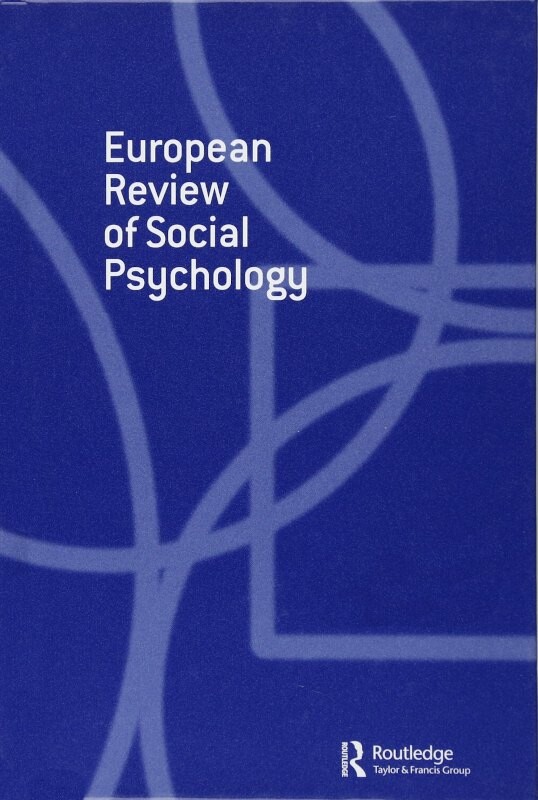 European Review of Social Psychology
Cover
Next Editor
for Social Psychological and Personality Science (SPPS)
The Consortium for Social Psychological and Personality Science has
opened nominations for the editorship of Social Psychological and
Personality Science (SPPS) to begin July 1st, 2023.
The Editor-in-Chief shall be responsible for the scientific content of
the journal, which currently appears in eight issues per annual volume.
SPPS is a unique short reports journal in social and personality
psychology. Its aim is to publish concise reports of empirical studies that
provide meaningful contributions to our understanding of important issues
in social and personality psychology. SPPS strives to publish
innovative, rigorous, and impactful research. It is geared toward a speedy
review and publication process to allow groundbreaking research to become
part of the scientific conversation quickly.
The term of office of the Editor-in-Chief will be for four years. The
journal has strong editorial support from the journal publisher (SAGE) as
well as a budget for editorial stipends. How this will be distributed to
editor, potential co-editors, and associate editors is open to negotiation
with the incoming editor. Candidates for the position should have prior
editorial experience with a peer-reviewed journal of some standing and
should be in the position to offer the significant commitment of time,
expertise, and resources that such a position requires.
Nominations (including self-nominations) should be sent with a
nominee’s CV and a short letter describing relevant qualifications,
editorial experience, and editorial philosophy to Prof. Roland Imhoff
(Consortium Chairperson) at roland.imhoff@uni-mainz.de.
Please title your email “SPPS nomination” and include all documents
(i.e., CV, short letter) in the same email, preferably as PDF attachments.
Review of nominations by the Consortium (Roland Imhoff [chair], Judith
Harackiewicz, Kerri Johnson, and Katie Corker) will begin on June 30th,
2022 and will continue until the position is filled.
Best regards,
Roland Imhoff, Judith Harackiewicz, Kerri Johnson, and Katie Corker
Consortium for Social Psychological and Personality Science
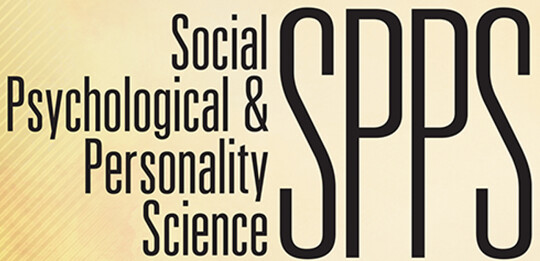 Logo: Social Psychological and Personality
Science (SPPS)
New Members
of the Association
The following applications for membership were approved by the Executive
Committee in May 2022. Each of the applicants will become a member of the
EASP in the category indicated below. Names of members providing letters of
support are included.
Full
Membership:
Sinan ALPER (Yasar University, Turkey)
Selahattin Adil Saribay, Ayse Uskul
Eugenio DE GREGORIO (Link Campus University, Italy)
Marino Bonaiuto, Monica Rubini
Angela DORROUGH (University of Cologne, Germany)
Laura Froehlich, Joris Lammers
Naif ERGUN (Mardin Artuklu University, Turkey)
Karen Douglas, Pelin Gul
Saulo FERNANDEZ ARREGUI (UNED, Spain)
Nyla Branscombe, Carmen Huici Casal
Ivana JAKSIC (University of Belgrade, Serbia)
Marija Brankovic, Iris Zezelj
Alexander JEDINGER (GESIS-Leibniz-Institute for the Social Sciences,
Germany)
Axel Burger, Tobias Rothmund
Maddalena MARINI (University of Campania Luigi Vanvitelli, Italy)
Silvia Galdi, Anne Maass
Anna Dorothee MISCHKOWSKI (University of Cologne, Germany)
Jan Crusius, Jens Lange
Boglrka NYUL (Eotvos Lorand University, Hungary)
Anna Kende, Josef Pantya
Maria OLSSON (Inland Norway University of Applied Sciences, Norway)
Sarah Martiny, Melanie Steffens
Zafer OZKAN (Ordu University, Turkey)
Karen Douglas, Pelin Gul
Jenny PATERSON (Northumbria University, UK)
Gordon Hodson, Lee Shepherd
Jasmin RICHTER (University of Oslo, Norway)
Anne Gast, Ann-Christin Posten
Daniela RUZZANTE (University of Trento, Italy)
Maria Paola Paladino, Jeroen Vaes
Shpend VOCA (AAB College, Kosovo)
Sylvia Graf, Mirjana Rupar
Kirsten WESTMORELAND (Rice University, USA)
Smadar Cohen-Chen, Susanne Quadflieg
Janis ZICKFIELD (Aarhus University, Denmark)
Magdalena Bobowik, Jens Lange
Tibor ZINGORA (Czech Academy of Sciences, Czech Republic)
Sylvie Graf, Martina Hrebickova
Postgraduate Membership:
Robert AVERY (University of Lausanne, Switzerland)
Fabrizio Butera, Eva Green
Oliver BLASCO (University of Bristol, UK)
Shelley McKeown Jones, Susanne Quadflieg
Rosandra COLADONATO (University of Trieste, Italy)
Mauro Bianchi, Andrea Carnaghi
Marty COLOMBO (Utrecht University, The Netherlands)
Dan Scheepers, Jojanneke van der Toorn
Daniela DI MICHELE (University of Padua, Italy)
Mara Cadinu, Francesca Guizzo
Isla DOUGALL (Durham University, UK)
Patrick Kotzur, Maja Kutlaca
Lewis DOYLE (University of Sussex, UK)
Matthew Easterbrook, Rebekka Kesberg
Martina FACCINI (University of Verona, Italy)
Elena Trifiletti, Inga Jasinskaja-Lathi
Aurore GABORIAUD (University Grenoble Alpes, France)
Dominique Muller, Anique Smeding
Robert GRUBER (University of the Arts Berlin, Germany)
Kai Epstude, Michael Hafner
Eline HEIKAMP (University of Groningen, The Netherlands)
Nina Hansen, Sabine Otten
Sarwesh ISHWARDAT (Utrecht University, The Netherlands)
Dan Scheepers, Jojanneke van der Toorn
Yoann JULLIARD (University Grenoble Alpes, France)
Florian Delmas, Dominique Muller
Dominika JURGIEL (Nicolaus Copernicus University, Poland)
Maria Lewicka, Adrian Wojcik
Aleksandra KOSIARCZYK (SWPS University of Social Sciences and
Humanities, Poland)
Katarzyna Cantarero, Dariusz Dolinski
Vladislav KRIVOSHCHEKOV (University of Bern, Switzerland)
Sylvie Graf, Sabine Sczesny
Annette MALAPALLY (Friedrich-Alexander University Erlangen-Nurnberg,
Germany)
Susanne Bruckmuller, Vera Hoorens
Nuria MARTINEZ (Canterbury Christ Church University, UK)
Dennis Nigbur, Anne Templeton
Ellora MIGUEL (University of Paris, France)
Virginie Bonnot, Yvette Assilamehou-Kunz
Kshitij MOR (Utrecht University)
Dan Scheepers, Jojanneke van der Toorn
Catherine MOUGHALIAN (University of Groningen, The Netherlands)
Rim Saab, Susanne Tauber
Sara PANERATI (University of Bologna, Italy)
Michela Menegatti, Monica Rubini
Van ROSSUM (KU Leuven, Belgium)
Daan Scheepers, Colette Van Laar
Beatrice STERNBERG (University of Paris Nanterre, France)
Constantina Badea, Anthony Lantian
Vera Maren STRASSBURGER (University of Applied Sciences and Medical
University, Hamburg, Germany)
Oliver Christ, Mathias Kauff
Marie WEISSFLOG (Ruhr University Bochum, Germany)
Lusine Grigoryan, Wilhelm Hofmann
Chenhao ZHOU (Utrecht University, The Netherlands)
Dan Scheepers, Jojanneke van der Toorn
Grant
Awards
The following members have received a grant from the EASP.
Seedcorn Grants:
A. Amer - “Navigating the academic space: Experiences of female Muslim
academics in British universities”
M.Gobel - “ Effects of economic inequality on distributed social
cognition”
T.Gkinopoulos - “The role of social media use, sense of community
inclusion, sense of ostracism and conspiracy mentality”
Collaborative Grants:
M. Sainz Martinez, C. Baldissarri - “Extending Knowledge about the
Individual-, Group-, and Contextual-level Variables that Trigger Workers’
Self-Objectification: A Three-level Analysis”
Travel Grants:
L. Pummerer – visit to the University Libre de Bruxelles
K. Jurstakova – visit to the University of Queensland for the first
Winter School Social Identity and Groups Network
Links to reports of previous funded grants can be found on the EASP
website: https://www.easp.eu/news/?kwKeyword=1
Executive Committee
Małgorzata Kossowska (Meetings Officer),
malgorzata.kossowska@uj.edu.pl
Institute of Psychology, Jagiellonian University, Ingardena 6, PL 30 060
Krakow, Poland
Roland Imhoff (Journals Officer), roland.imhoff@uni-mainz.de
Social and Legal Psychology, Johannes Gutenberg University Mainz, Binger
Str. 14-16, D-55122 Mainz, Germany
Nina Hansen (Treasurer), n.hansen@rug.nl
Department of Social and Organizational Psychology, University of
Groningen, Grote Kruisstraat 2/1, NL 9712 TS Groningen, Netherlands
Nurit Shnabel (Diversity Officer), shnabeln@tauex.tau.ac.il
The School of Psychological Sciences, Tel-Aviv University, Ramat Aviv,
Tel-Aviv, Israel
Karen Douglas (Secretary and Membership Officer),
k.douglas@kent.ac.uk
School of Psychology, University of Kent, Cantebury, Kent CT2 7NP, United
Kingdom
Monica Rubini (Grants and Membership Officer), monica.rubini@unibo.it
Department of Psychology, University of Bologna, I 40126 Bologna,
Italy
Kai Jonas (President), kai.jonas@maastrichtuniversity.nl
Work and Social Psychology, Maastricht University, Universiteitssingel 40,
NL 6229 ER Maastricht, The Netherlands
Kennedy D’Abreu de Paulo (Executive Officer), office@easp.eu
Universiteitssingel 40, PO Box 616, 6200 MD Maastricht, The
Netherlands
|






